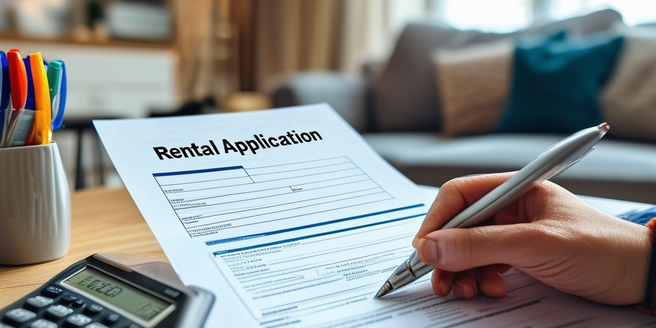Rental Property Management Tips

Understanding Tenant Screening Processes
Tenant screening is vital to ensure you rent to reliable and financially responsible tenants. The process typically includes a background check, credit score review, and previous rental history verification. Asking for references can provide additional insights into a tenant’s reliability. Conducting thorough screenings helps minimize risks, such as property damage, late payments, and potential evictions. Additionally, consider interviewing potential tenants to get a better sense of their character and intentions. It’s essential to comply with fair housing laws during this process. Using a standardized screening checklist can streamline your evaluation. Also, communicate criteria clearly to applicants to set the right expectations.
Optimizing Rental Property Maintenance
Regular maintenance keeps your rental property in prime condition, ensuring tenant satisfaction and preserving property value. Schedule routine inspections to identify and address potential issues early. Additionally, make sure to budget for unexpected repairs to avoid financial strain. Create a maintenance calendar to keep track of essential tasks like HVAC servicing, roof checks, and plumbing inspections. Regularly updating this calendar will help you stay organized. Ensuring timely updates and adjustments can prevent minor issues from becoming major problems. Promptly respond to tenant repair requests to maintain positive relationships. Consider using property management software to schedule and track maintenance activities efficiently.
Effective Communication with Tenants
Clear and consistent communication with tenants fosters trust and helps resolve issues quickly. Establish preferred communication channels, such as email or a property management app. Regularly update tenants on property matters like maintenance schedules, policy changes, or community events. Timely and clear notifications ensure tenants remain informed and engaged. Keep records of all communications to ensure accountability and transparency. Scheduling periodic meetings can further strengthen the landlord-tenant relationship. Clear communication helps prevent misunderstandings or conflicts. Encourage tenants to express their concerns and feedback openly. A prompt response to queries and requests demonstrates professionalism and can greatly enhance tenant satisfaction and retention.
Financial Management and Budgeting Tips
Effective financial management is crucial for successful property management. Start by creating a detailed budget that includes all expected income and expenses. Use accounting software to track your finances and generate reports for better insights. Periodically conduct financial reviews to identify areas for cost optimization. Transparent documentation is essential for keeping all parties informed. Effective communication with stakeholders can also significantly impact financial outcomes. Keep an emergency fund for unexpected repairs or vacancies. Regularly review and adjust your budget to align with actual performance. Consider hiring a professional accountant to ensure compliance with tax regulations and optimize financial planning.
Legal Considerations for Landlords
Landlords must be aware of legal obligations to avoid costly disputes and ensure fair treatment of tenants. Key legal considerations include understanding lease agreements, security deposit regulations, and eviction procedures. Regularly reviewing these agreements can prevent misunderstandings. Additionally, maintaining open communication with tenants can resolve issues before they escalate. Property managers should also consider attending legal workshops or seminars. Familiarize yourself with local and federal fair housing laws to avoid discrimination. Stay updated on landlord-tenant laws that may affect your responsibilities or tenants’ rights. Consulting with a real estate attorney can provide clarity and help navigate complex legal issues.
Utilizing Technology for Property Management
Leveraging technology can streamline property management tasks, improve efficiency, and enhance tenant satisfaction. Property management software offers features like online rent collection, maintenance tracking, and tenant communication. Additionally, using digital lease agreements can save time and reduce paperwork. Virtual tours and online listings can attract a wider pool of potential tenants. This, in turn, can lead to quicker occupancy rates and reduced vacancy periods. Installing modern software solutions can significantly boost operational efficiency. Install smart home devices like keyless entry systems and smart thermostats to enhance security and energy efficiency. Stay informed about emerging technologies to continually improve your property management processes.